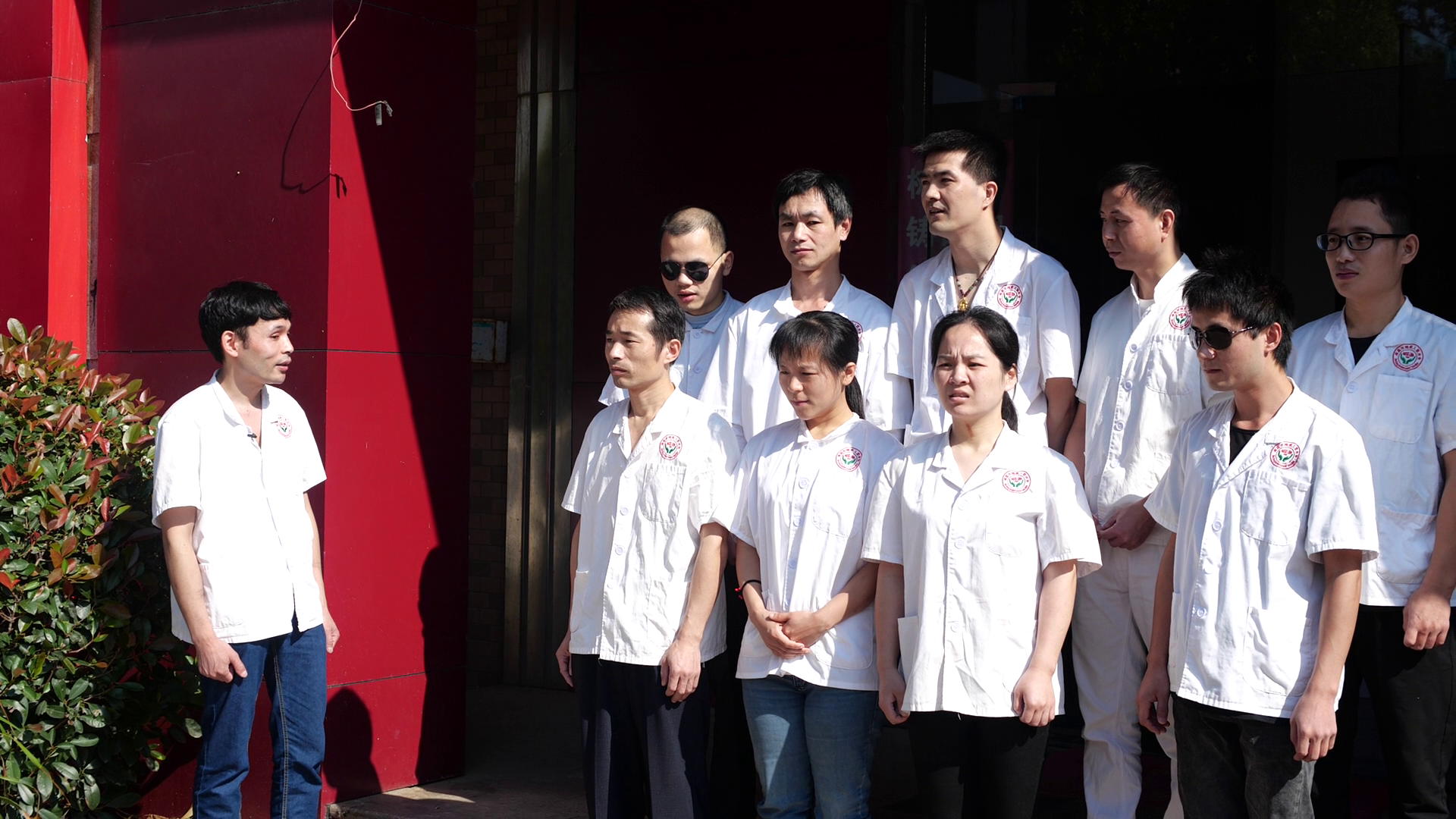NANCHANG, Oct. 16 (Xinhua) -- At first glance, Zhou Longfa may appear to be an ordinary masseur: He is skinny, talkative and accurately locates clients' acupuncture points. However, most people do not realize that he is visually impaired.
Zhou, 33, is a blind masseur in the city of Nanchang, capital of east China's Jiangxi Province. When he was four years old, Zhou had a high fever that damaged his vision.
"My eyesight just got worse, and I struggled to finish studies in middle school," Zhou said. "I felt like the road to the future had disappeared, just like the world in front of me."
However, Zhou is now the boss of several massage parlors in Nanchang, recruiting many other blind masseurs.
"You have to learn to be self-reliant and strong," he said.
Zhou's story has come to the forefront as China observes White Cane Safety Day on Thursday, a day designated to help the public better understand blindness and visual handicaps.
When his vision became too poor for him to see clearly, the native of Jiangxi's Wannian County became frustrated, upset and desperate.
"I have always been an impatient person, so when I found out that I was about to go blind, I was desperate," he said. "I was so eager to see the light again that I stumbled, fell to the ground and hit my head."
Zhou gradually came to terms with his situation. Occasionally, he heard that Nanchang had schools offering blind massage training sessions. He talked his parents into allowing him to take classes there.
"They were worried, but they could not think of a better choice," he said. "It was better for me to try something than just staying at home and doing nothing at all."
So Zhou arrived alone in Nanchang, about 150 km away from his rural hometown, and began to learn massage techniques that would eventually land him a job at a massage hospital two years later.
Relying on his massage skills, Zhou felt like he "ripped open the darkness" of his world.
"When I received my first month's paycheck, it felt like a glimmer of hope lit my way," he said.
After three years of working, he quit his job and took over a massage parlor.
"I thought that even if I failed, I could just go back to work in the hospital," he said.
However, the massage parlor he took over from the previous owner did not have much business, despite a large number of registered client members. Zhou called the members one by one, only to realize that the parlor had been transferred through the hands of many owners. The previous owner did not accept the membership cards registered from the owners before.
"I told the clients that I would take their membership cards, and that I would offer discounts," he said.
Business quickly returned, and the old clients brought in new members.
With discounts and business integrity, Zhou's business skyrocketed. He opened two more massage parlors, in addition to a massage hospital. He recruited about 30 blind people as his employees, giving them a monthly salary up to 8,000 yuan (1,189 U.S. dollars).
"We are all visually impaired people," he said. "Some of us are completely blind, and others partially."
China has about 85 million disabled people, with about 12 million visually impaired, according to the China Disabled Persons' Federation.
"If I can help one visually impaired person find a job with a decent income, I can literally help an entire family out of poverty," he said.
Zhou said that blind people have limited employment channels. He hopes that his efforts will help more blind people stand on their own and take care of their families.
"Through my life journey, I have received help from many kind-hearted people, and this is my way of giving back," he said. Enditem




 A single purchase
A single purchase









